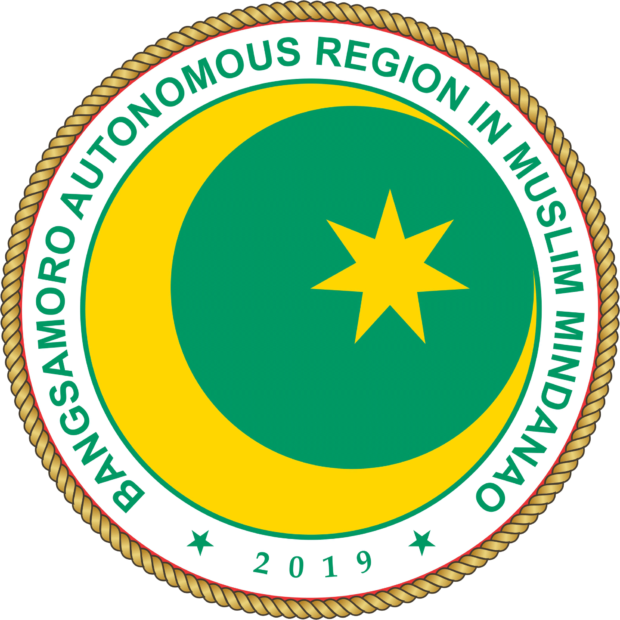
DAVAO CITY — Non-Moro indigenous peoples (IP) who felt their rights were being trampled upon in the Bangsamoro found an encouraging ear from senatorial candidates who agreed that a national law, like the Indigenous Peoples’ Rights Act (Ipra), could not be superseded by any local law and should continue to be in effect in the region.
Leticio Datuwata, chief of Timuay Justice and Governance of the Teduray-Lambangian tribe in Upi, Maguindanao province, had raised their dilemma to representatives of presidential candidates during the online policy forum, “Bangsamoro Agenda 2022: What to expect from the presidential candidates,” on Wednesday.
The processing and titling of their ancestral domain claim by the National Commission on Indigenous Peoples (NCIP) had been stopped by Bangsamoro authorities almost three years ago.
Datuwata said that although provisions in the Bangsamoro Organic Law respected the delineation of ancestral domain territory of non-Moro IPs, the opposite had been happening on the ground.
Serious
He was referring to a resolution issued by the Bangsamoro Transition Authority (BTA) on Sept. 25, 2019, asking the NCIP to “cease and desist” in the delineation of the tribe’s ancestral domain territory and the processing of the tribe’s certificate of ancestral domain title (CADT), which already falls within the territory of the Bangsamoro Autonomous Region in Muslim Mindanao (BARMM).
Datuwata told representatives of presidential candidates that “land grabbing” within their ancestral domain had been “rampant,” and even “resulted in the death of IP leaders inside the ancestral domain of the Teduray.”
“Land grabbing is a serious allegation,” said Sen. Aquilino Pimentel III, who represented Sen. Manny Pacquiao during the forum.
“If that’s the feedback received by the president, [then] he will be personally involved [in looking] into that situation … ,” said Pimentel, who chairs his and Pacquiao’s faction of the administration party Partido Demokratiko Pilipino-Lakas ng Bayan. “But just to cite the law, the Bangsamoro government recognizes the rights of indigenous peoples and shall adopt measures for the promotion of these rights, and that includes the processing of your native titles,” he added.
“We will not allow a misinterpretation of the law … [especially if it will] result in land grabbing and killings,” Pimentel said.
“While the presidential candidate of Reporma NPC (Nationalist People’s Coalition) recognizes the autonomy of the Bangsamoro, it also believes that the national law like the Ipra cannot be superseded by local ordinance or local law,” said senatorial candidate Emmanuel Piñol, who represented Sen. Panfilo Lacson.
“Therefore, the position of Reporma NPC is to implement the Ipra until such time when the Bangsamoro is able to pass a law that will adopt the Ipra in the context of the BARMM. The position of our presidential candidate [is to implement the] Ipra … and let the Teduray and Lambangian tribe of Upi, Maguindanao, get their fair share of the ancestral domain and be protected,” Piñol said.
In 2019, the Teduray-Lambangian tribe protested the BTA resolution, saying it would further delay the granting of the title to their ancestral domain claim—which covers 208,258 hectares in eight towns of Maguindanao and six villages of Lebak, Sultan Kudarat province, and some 14,000 ha of water.
The Teduray and Lambangian people, who started processing their claim in 2014, had completed all the required documents in August 2019 and were waiting to be granted their CADT by the NCIP, according to Timuay Santos Unsad, representative of Timuay Justice and Governance of the Teduray-Lambangian tribe of Maguindanao, in an earlier interview with the Inquirer.
IP Code
Senatorial aspirant Samira Gutoc, representing Manila Mayor Francisco “Isko Moreno” Domagoso, said she once pushed for the IP Code in the defunct Autonomous Region in Muslim Mindanao, which was not passed. She said such a code, which would recognize the tripeople system, was now being laid out in the BARMM.
But she added that the delineation of the land would also entail arbitration and mediation among the tribes and would need budget allocation. “[It would need funds] in tracking, inventory, titling, and [registration of lands],” she said.
Sonny Melencio, chair of Partido Lakas ng Masa and campaign manager of Leody de Guzman, said the Ipra had been one of the most progressive laws in the country but its problems lie in its implementation.
“If land grabbing [would] continue, there should be an immediate investigation,” he said. “We have to speed up the granting of CADT and ensure that the principle of free and prior informed consent should not be violated in any agreement within the communities.”
Liberal Party senatorial aspirant Teodoro “Teddy” Baguilat Jr. said the rights of indigenous peoples had been his personal advocacy and that Vice President Leni Robredo had been supportive of the recognition of IP rights in the Bangsamoro, especially their rights to their ancestral domain and their right to self-determination.
He said Robredo had been supporting the passage of the IP Code in the Bangsamoro and was working with the Bangsamoro government to strengthen IP affairs.
RELATED STORIES
Indigenous peoples hit BTA rule on ancestral domain
Indigenous tribes want ancestral lands excluded from Bangsamoro autonomy
IPs must get most benefit from mining, says Robredo